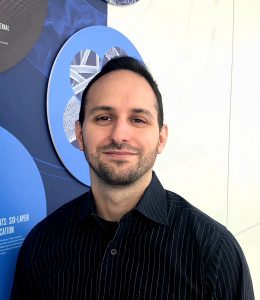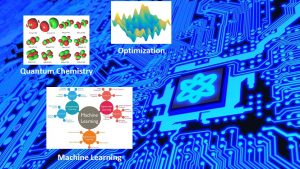Bio
“Quantum Computation: An Outlook on Potential Near-Term Applications in the Field of Computational Medicine”

Dr. Gregory Quiroz is a senior scientist at the Johns Hopkins University Applied Physics Laboratory. He is currently interested in quantum control protocols to improve the performance of quantum systems for quantum computation and sensing applications, and the development of quantum algorithms for near-term quantum computing devices. Previously, Dr. Quiroz was a scientist at the Aerospace Corporation, where he aided the Air Force Space and Missile Center in the assessment of quantum cryptography techniques, namely, quantum key distribution, for establishing secure space-to-ground communications. In addition, he worked to develop quantum algorithms for National Security Space applications.
 Click here to view webcast.
Click here to view webcast.
Abstract
“Quantum Computation: An Outlook on Potential Near-Term Applications in the Field of Computational Medicine”

Quantum computing (QC) promises computational advantages over classical alternatives for particular computational problems by exploiting quantum mechanical phenomena. In recent years, QC has become a highly attractive area for research in the academic, commercial, and government sectors, with notable investments from IBM, Google, and a number of government agencies. This push for QC has led to the realization of noisy, intermediate-scale quantum (NISQ) devices consisting of 10s of quantum bits, or qubits. Current NISQ-era devices do not possess the number of qubits, nor the qubit error rates required to reliably implement well-known QC algorithms, such as Shor’s factoring algorithm, and therefore, one of the central questions of has become: what are the potential applications for current and future NISQ hardware that could realize computational gain? Here, I provide a conceptual overview of QC and discuss recent experimental milestones obtained by researchers in the academic and commercial sectors. Lastly, I will discuss potential applications of near-term QC to the field of neuroscience.
 Click here to view webcast.
Click here to view webcast.